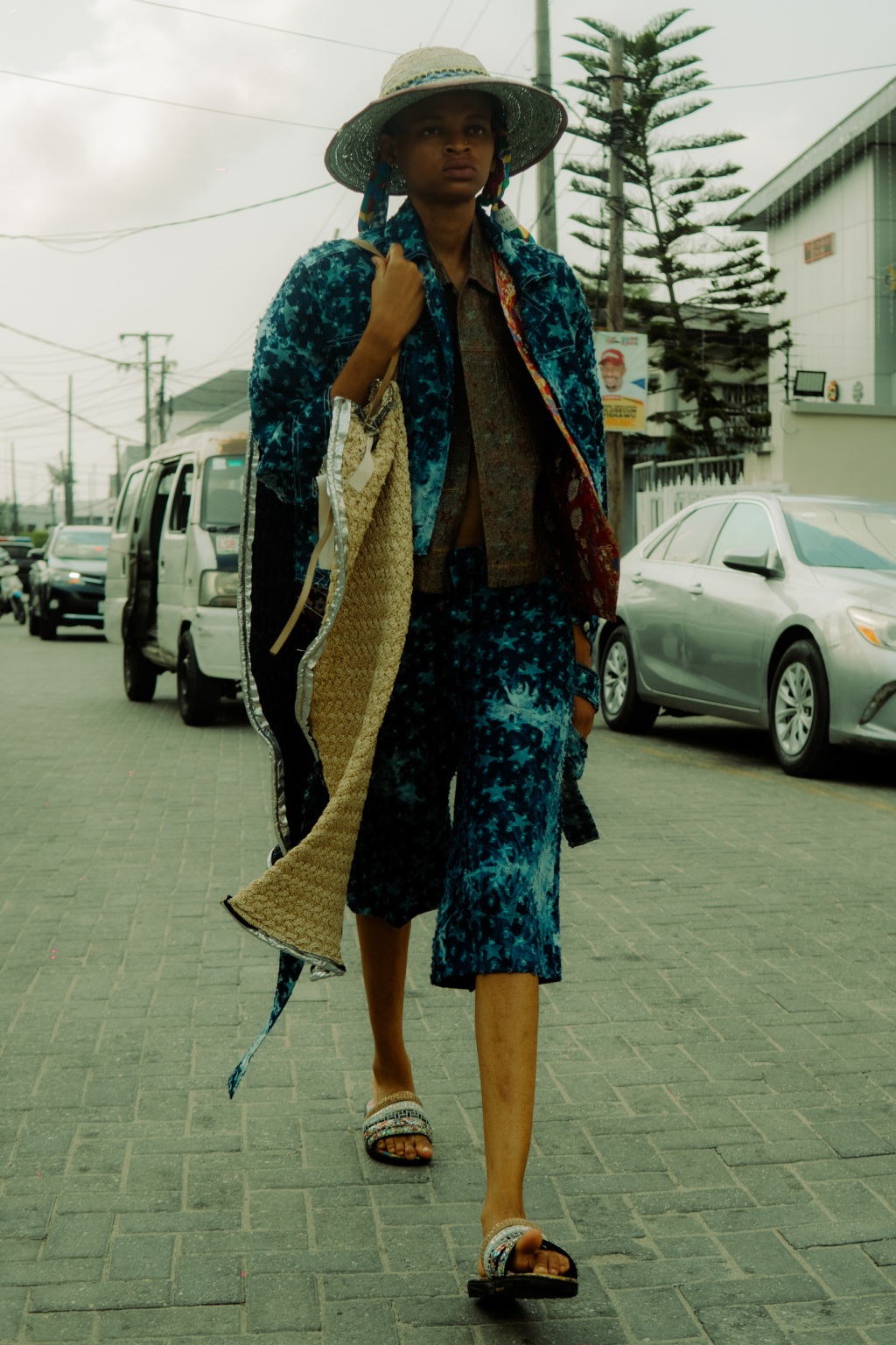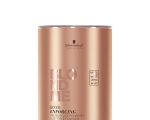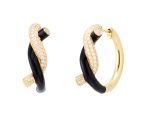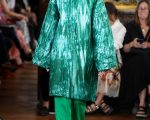
With his label officially on hiatus, Kenneth Ize’s fall collection was one of his most personal to date.
After parting ways with his investor last summer, the designer settled in Lagos, Nigeria, where he’s been reconnecting with his culture. With no official schedule to follow, Ize immersed himself in the life of the city and its bustling markets.
It got him thinking about the negative effects of all the secondhand clothing that’s imported into the African continent: not only has it decimated local manufacturing, but tons of clothes end up in landfills, polluting the environment.
Observing how younger Nigerians are embracing resale fashion, he decided to create an entire collection made from upcycled clothes, in a bid to challenge perceptions of what constitutes African luxury.
Ize went thrifting at the open-air stalls, sifting through hundreds of products in search of hidden gems. Other times, he literally plucked the clothes off roadside sellers.
“Some of them actually just trade it on their shoulder, walking on the streets. I stop them when I’m driving sometimes,” he said over Zoom. “Once I get back home, the excitement that I have is just burning. I just started making things.”
Working instinctively, Ize set about chopping up suits; splicing colorful scarves and ties into jackets and tops and giving items a second life by overdyeing them with tie-dye patterns or printing them with his signature Ouroboros motif, a circular symbol depicting a serpent or dragon eating its own tail.
It’s a symbol of renewal that felt especially relevant as he makes a fresh start. Ize said he found strength and inspiration in reconnecting with the experimental spirit of his student days. “It feels also very spiritual to work this way,” he mused. “It was just, like, having to just touch and feel again and go with your instincts truly.”
By turns frenetic and inspired, his collaged creations pulsed with DIY panache. He also offered new takes on his signature woven fabrics, done in lighter, more affordable yarns, as he seeks alternative funding for his local production unit.
Ize presented the collection on the street, in part to proclaim his identity in a country where homosexuality remains outlawed.
“It’s a way of openness. As a queer person living in Nigeria, I think it’s very important for me to show my dynamic and to show that I’m here,” he said. “The styling of it is really, truly how people dress in Lagos. It’s how to mix and match, like accumulating things together, you know — what makes it so fun and what makes fashion here so incredible.”
The designer, who reached the semifinals of the LVMH Prize for Young Designers in 2019, hopes to return to the Paris runway in the not-too-distant future. “I truly, truly miss my fashion family,” he said.
In the meantime, he’s taken to heart the title of this collection: “Backward Never, Forward Ever.”
“I literally have a tattoo on my neck,” he said with a laugh.







